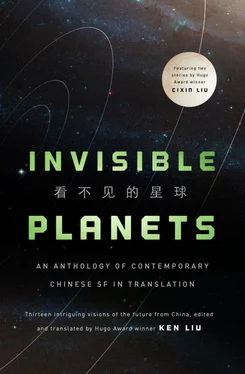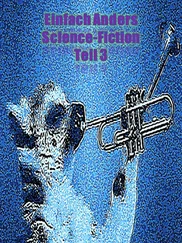To be honest, given the job market right now and my lack of employable skills, staying in school was not really my “choice.” But I wasn’t going to admit that to my parents.
As for Pea, because of the trade war with the Western Alliance, he couldn’t get a visa. A biology student who couldn’t leave the country had no job prospects domestically, especially since he was clearly the sort who was better at reading books than hustling.
I had no interest in joining the Rodent-Control Force. As they continued the propaganda onstage, I muttered under my breath, “Why not send the army?”
But Pea turned to me and started to lecture. “Don’t you know that the situation on the border is very tense right now? The army’s role is to protect the country against hostile foreign nations, not to fight rats.”
Who talks like that? I decided to troll him a bit. “Why not send the local peasants, then?”
“Don’t you know that grain supplies are tight right now? The work of the peasantry is to grow food, not to fight rats.”
“Why not use rat poison? It’s cheap and fast.”
“These are not common rats, but Neorats™. Common poisons are useless.”
“Then make genetic weapons, the kind that will kill all the rats after a few generations.”
“Don’t you know that genetic weapons are incredibly expensive? Their mission is to act as a strategic deterrent against hostile foreign nations, not to fight rats.”
I sighed. This guy was like one of those telephone voice menus, with only a few phrases that he used all the time. Trolling him wasn’t any fun.
“So you think the job of college graduates is to fight rats?” I said, smiling at him.
Pea seemed to choke, and his face turned red. For a while, he couldn’t say anything in response. Then he turned to clichés like “the country’s fate rests on every man’s shoulders.” But finally he did give a good reason: “Members of the Rodent-Control Force are given food and shelter, with guaranteed jobs to be assigned after discharge.”
* * *
The platoon has returned to the town to be resupplied.
In order to discourage desertion, all the students in the Rodent-Control Force are assigned to units operating far from their homes. We can’t even understand one another’s dialects, so everyone has to curl his tongue to speak Modern Standard Mandarin.
I mail Pea’s book and glasses to his parents. I try to write a heartfelt letter to them, but the words refuse to come. In the end, I write only, “I’m sorry for your loss.”
But the postcard I write to Xiaoxia is filled with dense, tiny characters. I think about her long, long legs. This is probably my twenty-third letter to her already.
I find a store to recharge my phone and text my parents at home. When we’re operating in the field, most of the time we get no signal.
The shop owner takes my one yuan and grins at me. The people of this town have probably never seen so many college graduates (though right now we’re covered in dirt and not looking too sharp). A few old men and old women smile at us and give us thumbs-ups—but maybe only because they think we’re pumping extra money into the town’s economy. As I think about Pea, I want to give them my middle finger.
After the Drill Instructor takes care of Pea’s funeral arrangements, he takes us to a cheap restaurant. “We’re still about twenty-four percent away from accomplishing our quota,” he says.
No one answers him. Everyone is busy shoveling rice into his mouth as quickly as possible.
“Work hard, and let’s try to win the Golden Cat Award, okay?”
Still no one answers him. We all know that the award is linked to the bonus paid to the Drill Instructor.
The Drill Instructor slams the table and gets up. “You want to be a bunch of lazy bums all your life, is that it?”
I grab my rice bowl, thinking that he’s going to flip the table.
But he doesn’t. After a moment, he sits down and continues to eat.
Someone whispers, “Do you think our detector is broken?”
Now everyone starts talking. Most are in agreement with the sentiment. Someone offers a rumor that some platoon managed to use their detector to find deposits of rare earth metals and gas fields. They stopped hunting for rats and got into the mining business, solving the unemployment problem of the platoon in one stroke.
“That’s ridiculous,” the Drill Instructor says. “The detector follows the tracer elements in the blood of the rats. How can it find gas fields?” He pauses for a moment, then adds, “If we follow the flow of the water, I’m sure we’ll find them.”
* * *
The first time I saw the Drill Instructor, I knew I wanted to hit him.
As we lined up for the first day of boot camp, he paced before us, his face dour, and asked, “Who can tell me why you’re here?”
After a while, Pea hesitantly raised his hand.
“Yes?”
“To protect the motherland,” Pea said. Everyone burst out in laughter. Only I knew that he was serious.
The Drill Instructor didn’t change his expression. “You think you’re funny? I’m going to award you ten push-ups.” Everyone laughed louder.
But that stopped soon enough. “For the rest of you, one hundred push-ups!”
As we gasped and tried to complete the task, the Drill Instructor slowly paced among us, correcting our postures with his baton.
“You’re here because you’re all failures! You lived in the new dorms the taxpayers built, ate the rice the peasants grew, enjoyed every privilege the country could give you. Your parents spent their coffin money on your tuition. But in the end, you couldn’t even find a job, couldn’t even keep yourselves alive. You’re only good for catching rats! Actually, you’re even lower than rats. Rats can be exported for some foreign currency, but you? Why don’t you look in the mirror at your ugly mugs? What are your real skills? Let me see: chatting up girls, playing computer games, cheating on tests. Keep on pushing! You don’t get to eat unless you finish.”
I gritted my teeth as I did each push-up. I thought, If someone would just get a revolt started, I’m sure all of us together can whip him.
Everyone else thought the exact same thing, so nothing happened.
Later, when we were eating, I kept on hearing the sound of chopsticks knocking against bowls because our hands and arms were all trembling. One recruit, so sunburned that his skin was like dark leather, couldn’t hold his chopsticks steady and dropped a piece of meat on the ground.
The Drill Instructor saw. “Pick it up and eat it.”
But the recruit was stubborn. He stared at the Drill Instructor and didn’t move.
“Where do you think your food comes from? Let me explain something to you: the budget for your food is squeezed out of the defense budget. So every grain of rice and every piece of meat you eat comes from a real soldier going hungry.”
The recruit muttered, “Who cares?”
Pa-la! The Drill Instructor flipped over the table in front of me. Soup, vegetables, rice covered all of us.
“Then none of you gets to eat.” The Drill Instructor walked away.
From then on that recruit became known as Black Cannon.
The next day, they sent in the “good cop,” the district’s main administrator. He began with a political lesson. Starting with a quote from The Book of Songs (tenth century BC) (“rat, oh, rat, don’t eat my millet”), he surveyed the three-thousand-year history of the dangers posed to the common people by rat infestations. Then, drawing on contemporary international macro-politico-economic developments, he analyzed the unique threat posed by the current infestation and the necessity of complete eradication. Finally, he offered us a vision of the hope and faith placed in us by the people: “It’s honorable to love the country and support the army; it’s glorious to protect the people and kill rats.”
Читать дальше












